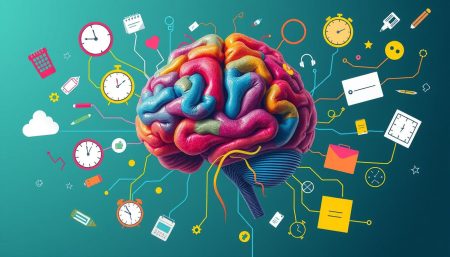Living with or caring for someone with Antisocial Personality Disorder (ASPD) is very tough. This condition shows a long-term disregard for others and society’s rules. We will explore how to manage ASPD, offering strategies to improve well-being.
This guide is a detailed look at treating ASPD. It shows how therapy and support can help. This can lead to a better life for those with ASPD and their loved ones.
Our guide covers all treatment options. It talks about cognitive behavioral therapy and how medicine can help. For more information, check out Mayo Clinic’s detailed guide.
Key Takeaways
- ASPD presents unique challenges and necessitates a multifaceted treatment plan.
- Therapies, medication, and support systems are integral to managing antisocial personality disorder.
- Improving well-being with ASPD is possible with consistent and personalized treatment strategies.
- Educational resources like the Mayo Clinic offer valuable information for comprehensive care.
- The treatment guide for ASPD contributes to understanding and navigating the disorder.
Understanding Antisocial Personality Disorder
It’s important to understand antisocial personality disorder (ASPD) for both doctors and the public. This condition shows a disregard for others and often breaks societal rules. We’ll look into what ASPD is, its symptoms, behaviors, and possible causes.
What is Antisocial Personality Disorder?
ASPD is a mental health issue where people act in harmful ways. They often don’t care about others and think too highly of themselves. This can lead to dishonest or violent actions, making it hard to have good relationships.
Key Symptoms and Characteristics
Knowing the symptoms of ASPD is key for early help. These signs can be different but often include lying for personal gain, acting on impulse, and being aggressive. People with ASPD also ignore their own safety and others’, and they’re often irresponsible.
- Deceitfulness
- Lack of empathy
- Disregard for societal norms
Causes and Risk Factors
Looking into why ASPD happens shows it’s complex. It involves genetics, environment, and psychology. Childhood experiences, like trauma or bad family situations, can play a big role.
| Risk Factor | Description | Impact Level |
|---|---|---|
| Genetic Predisposition | Family history of mental health disorders | High |
| Environmental Influences | Exposure to violence or neglect during childhood | High |
| Neurobiological Factors | Differences in brain chemistry and structure | Medium |

Diagnosis of Antisocial Personality Disorder
Getting a correct diagnosis for Antisocial Personality Disorder (ASPD) is hard. It needs a detailed professional evaluation for ASPD. This careful check makes sure the diagnosis meets strict diagnostic criteria for antisocial personality disorder.
Importance of Professional Evaluation
It’s very important to diagnose ASPD right. This is for the right treatment and to believe those who have it. A professional evaluation for ASPD uses special interviews and looks at the person’s past actions. This helps tell ASPD apart from other disorders that might seem similar.
Common Diagnostic Tools and Methods
There are many ways to diagnose ASPD. These include talking to the person, using tests, and looking at family or past medical records. Each method helps understand the person’s behavior and personality better.
| Diagnostic Tool | Usage | Benefits |
|---|---|---|
| Structured Clinical Interviews | Assesses personality disorders | Highly accurate, thorough assessment |
| Personality Assessment Inventories | Used to evaluate a variety of mental disorders | Comprehensive understanding of personality traits |
| Clinician Observations | Behavioral assessment during interviews | Real-time insights into patient’s interpersonal interaction |
These tools work best when used by experts. They can understand the complex nature of ASPD. This deep understanding is key to making a correct diagnosis. A good diagnosis is the first step to effective treatment.
Psychotherapy Approaches for Treatment
Antisocial Personality Disorder (ASPD) is tough for those with it and for everyone else. But, new psychotherapy methods are helping. These methods help with ASPD symptoms and improve how people interact and feel about themselves.
Cognitive Behavioral Therapy (CBT)
Cognitive Behavioral Therapy is key in treating ASPD. It’s great at changing bad behavior. CBT helps people make better choices and understand the value of working together.
It teaches them to think about their actions and how they affect others. This helps with controlling impulses and being accountable.
Dialectical Behavior Therapy (DBT)
DBT helps by teaching mindfulness and managing strong emotions. These are big issues for people with ASPD. It combines different techniques to reduce aggression and improve relationships.
DBT makes people more aware of their feelings and how they interact with others. This is very helpful.
Schema Therapy
Schema therapy is special because it works for people who haven’t done well with other treatments. It digs deep into patterns that have been there for a long time. This is especially important for ASPD.
It helps change deep, lasting behaviors. This can lead to big changes in how someone acts and feels.

Using these special psychotherapy methods is a big step forward in treating ASPD. Each one has its own benefits. Together, they make a strong treatment plan for ASPD’s many challenges.
As we move forward, we need to keep improving these treatments. This will help patients get better and improve their relationships with others.
Medication Options for Symptom Management
Managing symptoms of Antisocial Personality Disorder (ASPD) can be tough. Medications like antidepressants, mood stabilizers, and antipsychotics help a lot. They control disruptive behaviors and emotional ups and downs linked to ASPD. Using these meds right is key to a good treatment plan, helping patients live better lives.
Antidepressants and Mood Stabilizers
Antidepressants and mood stabilizers are used to handle mood swings and aggressive behavior. They lessen the bad behaviors that hurt social and work life. This makes it easier for patients to connect with others and fit into society.
Antipsychotic Medications
Antipsychotics are mainly for severe aggression and impulsivity in ASPD patients. Doctors choose them carefully because they can have strong side effects. It’s crucial to watch how they work and make changes as needed to keep them safe and effective.
Effectiveness and Considerations
How well these meds work depends on the patient and their symptoms. Finding the right treatment often means trying different things and adjusting often. It’s also important to watch for side effects and how they might mix with other meds. This needs a team effort with a doctor to manage well.
For more info, check out Cleveland Clinic’s resource on antisocial personality disorder. It offers great insights into symptoms, causes, and treatment options.

The Role of Family and Support Systems
Understanding the family’s role in ASPD treatment is key. It helps create a supportive space for recovery. Involving the family improves treatment results and helps manage antisocial behaviors well.
Importance of Family Involvement
Family involvement in ASPD management has many benefits. Relatives offer emotional support, which people with ASPD often lack. By joining therapy and learning about ASPD, families become crucial support systems. This helps in better communication and building empathy.
Support Groups for Families
Support groups are vital for families dealing with ASPD. They educate and prepare families to face ASPD challenges. These groups offer a place to share experiences and strategies, reducing feelings of isolation. They also help in managing antisocial behaviors, building resilience and understanding.
Building a Supportive Environment
Creating a stable and understanding environment is crucial for ASPD recovery. It involves setting clear boundaries, encouraging honest communication, and promoting positive social interactions. Recognizing and appreciating treatment progress motivates individuals to keep recovering.

| Strategy | Benefits | Implementation |
|---|---|---|
| Family Therapy Sessions | Improves communication, enhances mutual understanding | Regular sessions with a therapist specializing in ASPD |
| Educational Workshops | Increases awareness about ASPD, reduces stigma | Participate in workshops offered by mental health organizations |
| Consistent Home Environment | Supports behavioral management, reduces stress | Maintain routine, set clear rules and consequences |
Behavioral Interventions and Strategies
Dealing with antisocial personality disorder (ASPD) needs a mix of strategies. Behavioral strategies for ASPD are key. They focus on social skills improvement and anger management in ASPD. These methods help reduce symptoms and improve life quality through better social interactions and emotional control.
Social Skills Training
People with ASPD often struggle with social cues. Social skills training is vital. It teaches them to understand and respond to social situations. This training uses role-playing to practice new behaviors in a safe setting.
Anger Management Techniques
Teaching anger management in ASPD is also crucial. These methods help recognize anger signs early. They offer strategies to manage intense emotions and avoid aggressive behavior. Techniques like deep breathing, cognitive reframing, and progressive muscle relaxation are used to reduce anger symptoms.

| Technique | Description | Benefits |
|---|---|---|
| Role-Playing | Engaging in controlled social interactions to practice new skills. | Improves understanding of social cues and appropriate responses. |
| Cognitive Reframing | Changing the negative thought patterns that lead to anger. | Helps perceive situations in a less threatening light, reducing anger responses. |
| Deep Breathing Exercises | Using breathing techniques to control physiological arousal associated with anger. | Calms the body, helps manage immediate stress and anger. |
| Progressive Muscle Relaxation | Systematically tensing and relaxing different muscle groups to reduce overall tension. | Aids in reducing the physical symptoms of anger and stress. |
Using social skills improvement and anger management in ASPD is key. These strategies are part of a complete treatment plan. With practice and professional help, people with ASPD can see big improvements. This leads to a more stable and fulfilling life.
Alternatives and Emerging Treatments
New treatments for antisocial personality disorder (ASPD) are being developed. These alternative ASPD treatments might work alongside or instead of traditional methods.
Mindfulness and Meditation
Mindfulness and meditation are showing great promise. They help people with ASPD understand their feelings and actions better. This can lead to better control over their behavior.
This therapy helps people stay focused and aware. It’s especially helpful for those with personality disorders.
Holistic Approaches
Holistic therapy for personality disorders focuses on the whole person. It treats the mind, body, and spirit together. This approach aims to heal the root causes and improve overall health.
It encourages a balanced lifestyle and better mental health. This is a key part of treating personality disorders.
Neurofeedback and Brain Stimulation
Neurofeedback is a new and exciting treatment. It uses biofeedback to train the brain. Neurofeedback benefits include better self-control and thinking skills.
It’s especially useful for people with ASPD. It helps manage impulsiveness and aggression.
| Treatment | Method | Primary Benefit |
|---|---|---|
| Mindfulness | Meditative practice focusing on present moment awareness | Enhances emotional regulation |
| Holistic Therapy | Combines dietary, physical, and psychological therapies | Promotes overall wellbeing |
| Neurofeedback | Brain activity modulation through real-time feedback | Improves behavioral control |
Long-term Management and Coping Strategies
Managing Antisocial Personality Disorder (ASPD) for the long term needs a big commitment and clear plans. Using long-term ASPD management, fostering personal accountability, setting goals in ASPD treatment, and sticking to therapy are key. This part will look at important ways to help people for a long time.
Developing Personal Accountability
Being accountable is key for managing ASPD well. It means knowing how your actions affect others. Ways to improve accountability include thinking about your actions, going to cognitive behavioral therapy, and getting feedback from others.
Setting Realistic Goals
Setting goals is important in ASPD treatment. Goals should be clear, measurable, and reachable (SMART). Helping patients set their own goals helps them feel more in control and responsible for their disorder.
Maintaining Consistent Therapy Attendance
Going to therapy regularly is crucial for ASPD treatment. Mental health professionals offer support, help change behaviors, and teach coping skills. Making patients see how important therapy is can help them stay with treatment.
| Strategy | Objective | Tools |
|---|---|---|
| Personal Accountability | Increase self-awareness and responsibility | Self-reflection, Feedback, CBT |
| Realistic Goals | Encourage motivation and responsibility | SMART criteria, Personal input |
| Therapy Adherence | Ensure consistent treatment engagement | Schedule regular sessions, Therapist Monitoring |
Challenges in Treatment and Recovery
The journey to overcome antisocial personality disorder (ASPD) is filled with obstacles. These include overcoming ASPD treatment resistance and managing comorbid conditions. These factors greatly affect treatment success and make recovery harder.
Resistance to Treatment
One big challenge in ASPD therapy is treatment resistance. This stems from mistrust of healthcare providers and a lack of insight into one’s actions. To overcome this, building a strong bond with the therapist, using motivational therapy, and setting realistic goals are key. These steps help individuals become more involved in their recovery.
Comorbid Conditions Management
ASPD often comes with other mental health issues like depression, substance abuse, and anxiety. Managing comorbid conditions is vital for treating ASPD effectively. It requires a detailed plan that tackles all related disorders at once.
Using dual-diagnosis treatment programs has shown to be effective. These programs combine psychiatric and substance abuse treatments. They offer a comprehensive approach tailored for complex cases, helping to overcome ASPD treatment resistance.
| Challenge | Impact on Recovery | Strategies for Management |
|---|---|---|
| Treatment Resistance | High dropout rates and poor engagement | Motivational interviewing, consistent follow-up |
| Substance Abuse | Worsens ASPD symptoms and recovery outcomes | Integrated treatment programs, ongoing support groups |
| Mental Health Comorbidities | Increased severity of symptoms and complications | Simultaneous treatment of all disorders, personalized therapy plans |
It’s crucial to tackle these ASPD recovery challenges head-on. By understanding and addressing them, we can improve treatment outcomes. This leads to better lives for those affected.
Resources and Next Steps for Patients and Families
Starting to manage Antisocial Personality Disorder (ASPD) is a big step towards feeling better. The journey may seem tough, but there are many resources and tips to help. Finding ASPD resources, learning about the disorder, and getting ready for treatment are key steps.
This article aims to offer hope and support. It highlights ways to find help and understand ASPD better.
Finding Qualified Professionals
Finding the right mental health professionals is crucial for managing ASPD. Look for therapists or counselors with experience in personality disorders. Check their credentials and look for recommendations from trusted sources.
Professional groups like the American Psychological Association (APA) or the National Board for Certified Counselors (NBCC) have directories. Your doctor or local mental health clinics can also suggest experts in ASPD.
Educational Materials and Websites
Learning about ASPD can empower you or your loved one. There’s a lot of educational content available. Websites like the National Institute of Mental Health (NIMH) or the Mayo Clinic have helpful information.
Books by psychology experts can also deepen your understanding. They share experiences and research, offering comfort and insight.
How to Prepare for Treatment Sessions
Being prepared for treatment sessions is important. It means being ready both practically and emotionally. Keeping a journal of your symptoms and behaviors can help your therapist.
Your loved ones can also help by noting their observations. Being open and honest during sessions can greatly help your progress.
FAQ
Q: What is Antisocial Personality Disorder (ASPD)?
A: Antisocial Personality Disorder is a mental health issue. It shows a long-term disregard for others’ rights. Symptoms include being deceitful, lacking empathy, and acting impulsively.
Q: Which treatments are available for managing Antisocial Personality Disorder?
A: Treatments for ASPD include psychotherapy like Cognitive Behavioral Therapy (CBT) and Dialectical Behavior Therapy (DBT). Schema Therapy is also used. Medications help manage symptoms, but they don’t cure the disorder.
Q: Why is a professional diagnosis of ASPD important?
A: Getting a professional diagnosis is key. It ensures you get the right treatment. It involves interviews, questionnaires, and checking against diagnostic criteria.
Q: How can family and support systems aid in the treatment of ASPD?
A: Family and support systems are crucial. They offer emotional support and help in therapy. They create a positive environment that encourages change.
Q: What role does medication play in treating ASPD?
A: Medication helps manage symptoms like aggression. Antidepressants, mood stabilizers, and antipsychotics are common. But, they must be monitored for side effects.
Q: Are there any behavioral strategies that help manage ASPD symptoms?
A: Yes, social skills training and anger management are key. They help improve interactions and manage emotions.
Q: What alternative and emerging treatments are available for ASPD?
A: New treatments include mindfulness, meditation, and holistic approaches. Neurofeedback is also being explored. These may help alongside traditional treatments.
Q: What does long-term management of ASPD involve?
A: Long-term management requires personal accountability and setting goals. Consistent therapy attendance is essential. It’s a lifelong effort to manage symptoms and improve behaviors.
Q: How can resistance to treatment in ASPD be addressed?
A: To overcome resistance, build trust with your therapist. Tailor therapy to your needs. Address any other conditions that might affect treatment.
Q: What resources and next steps should patients and families take?
A: Seek qualified professionals for diagnosis and treatment. Learn about ASPD from reliable sources. Prepare for therapy to make it more effective.


















